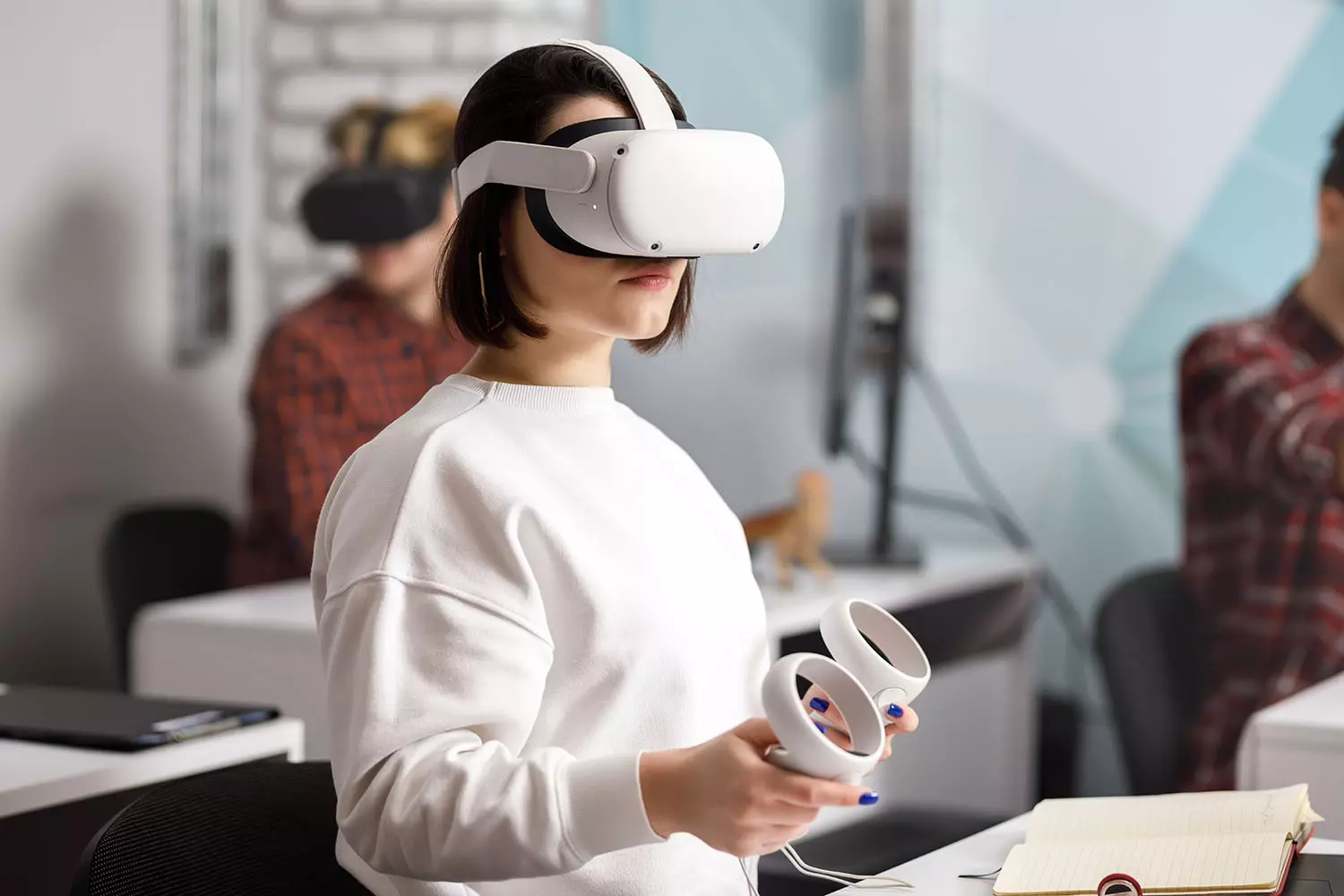Innovative projects put people at the centre
Virtual reality for sustainable urban spaces, deepfakes for mental health therapies or game-based transformation in education: the innovation program of the DIZH supports innovative applications that address human needs and values.

In 18 diverse projects, researchers working together across different universities are addressing topics such as sustainability, education, or health. With a funding of CHF 4 million from the special credit, which is co-financed equally by the DIZH universities in a "matching funds" principle, DIZH enables exchanges between different perspectives and supports close collaboration between research and practice. The ZHAW is involved in more than half of the funded projects. Three of the projects are led by ZHAW-researchers. Andrea del Duce from the ZHAW School of Engineering works together with a team by ZHAW and Zurich University of the Arts (ZHdK) on a virtual reality experience for sustainable urban spaces. Similarly, Joel Gautschi from the ZHAW School of Social Work works with ZHdK and uses virtual reality, but to develop a training toolkit to assess emotional abuse of children. The third project was initiated by Georg Spillner from ZHAW Life Sciences and Facility Management. Together with a team from the University of Zurich (UZH), he explores data-driven stroke management using machine-learning techniques.
Social, artistic, pedagogical and humanities
All the 18 funded projects use technologies in a targeted way to enable human-centred innovation. Among other things, teams develop a hearing test in a virtual 3D audio environment, a game in which spatial thinking is trained, or use artificial intelligence to relieve clinical staff in intensive care units. For the projects with a duration of one to three years, up to CHF 300,000 in funding from the DIZH special credit can be applied for. The funding was awarded to interdisciplinary teams of ZHAW, UZH, ZHdK and PHZH in a competitive procedure. "More applications from the social, artistic, pedagogical and humanities fields were submitted for the second Project Call. Cross-disciplinary and cross-university collaboration has become established, and in dialogue with different practice partners, novel questions have emerged whose implementation we are eagerly following," says Dirk Wilhelm, chair of the DIZH Innovation Panel and director of the ZHAW School of Engineering.
The impact of deepfakes in virtual reality scenarios for mental health therapy
Digital innovations have been used as an attempt to amplify the effect of existing therapy treatments, but have a few practical limitations. Researchers from the ZHdK (Paulina Zybinska) and the Institute of Psychology of the UZH (Marte Roel Lesur and Birgit Kleim) are investigating to what extent the combination of deepfakes and virtual reality enable novel therapies. Through this combination, novel rescripting possibilities might be enabled, where the patients face themselves in situations easily co-developed together with the therapists. The project not only contributes to the ongoing digital transformation in the context of mental health but takes also critical stance regarding the development and potential harms of digital technologies at an individual and societal level.
Revolutionizing Education60+: Digital Lifelong Learning
In a world of increasing longevity and digitalization, learning in old age is an important pillar of aging well. Digital learning tools target young and rarely address the needs of generation60+. Burcu Demiray, UZH, Fredrik Hacklin and Zeynep Erden from the ZHAW School of Management and Law want to revolutionize education60+ by developing a new e-learning concept and platform with sustainable age-friendly content and learning experience.
Design your city: A virtual reality experience for sustainable urban spaces
Researchers from the ZHAW (Andrea Del Duce and Raphael Hoerler, School of Engineering, Muriel Siegwart, Life Sciences and Facility Management) and the ZHdK (Niklaus Heeb and Jonas Christen) create and investigate an innovative tool for participatory design processes. This efficiently supports the Zurich city administration in the planning of sustainable urban spaces and thus makes an important contribution to the climate goal of the city and canton of Zurich of net zero CO2 emissions by 2040. VBZ, myclimate, Fussverkehr Schweiz and UmverkehR will use the app to raise awareness on the topic of sustainable urban spaces in order to promote a climate-friendly change in transport.
Contact
Sabine Dani, Communication DIZH, Phone: 044 635 35 03, E-mail: sabine.dani@uzh.ch
